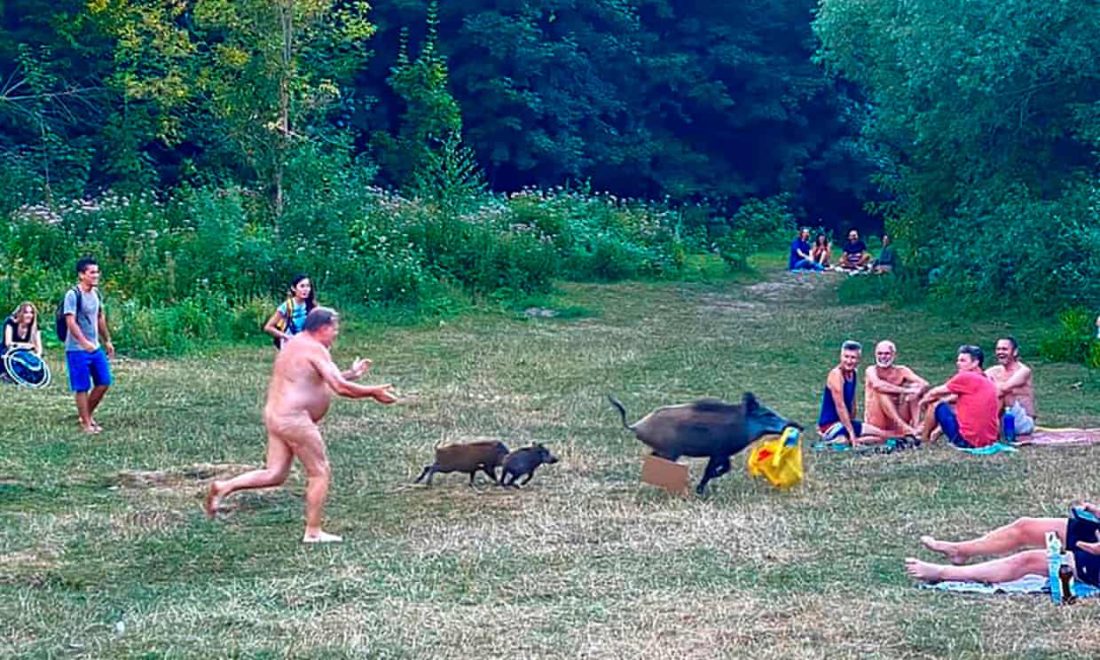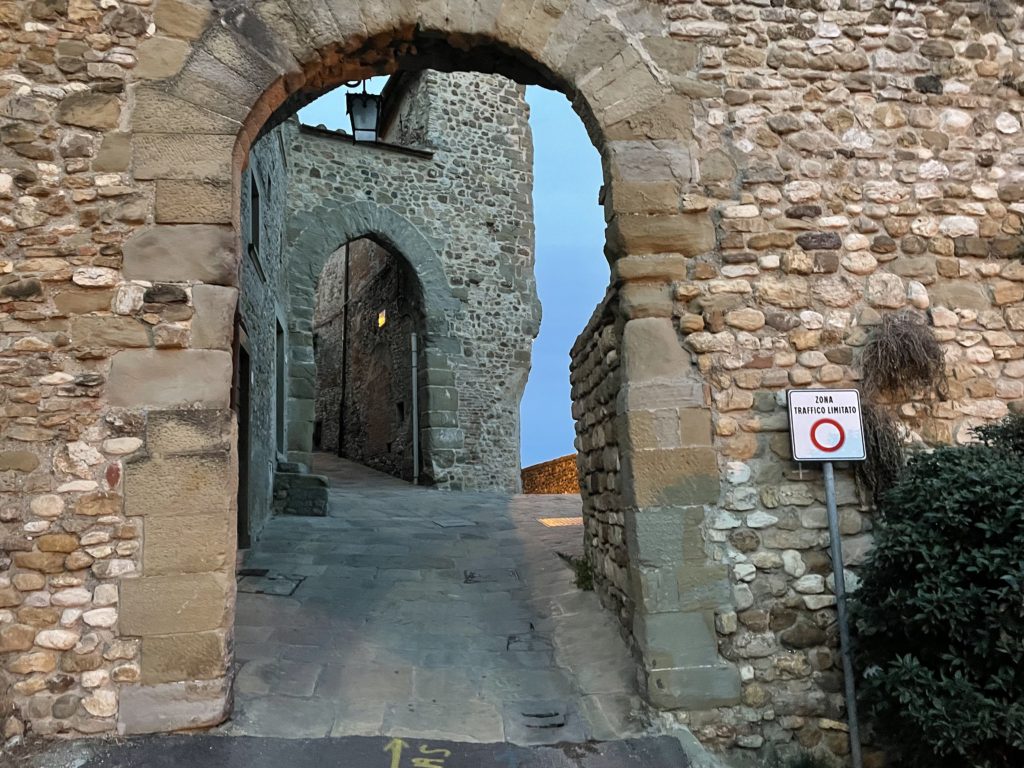
On elections, mayors, and boars
Italy’s largest cities—Rome, Milan, Turin, Naples, and Bologna—recently held mayoral elections, as did our village. Perhaps our election was less covered in the international press, but that doesn’t mean that it lacked drama.
Rome’s election was largely about trash and wild boar. The incumbent, Virginia Raggi, the Five Star Movement candidate (an anti-immigrant, Eurosceptic, right-wing party), was elected in 2016 but didn’t even qualify for the 2021 runoff election, largely because of Rome’s handling of basic services. When I’ve been to Rome over the past few years, especially in the suburbs, I’d see piles of overflowing trash surrounding groups of dozens of mounded dumpsters every couple of kilometers. This plentiful availability of food is heaven for rats, of course, but also wild boar. The wild boar population in Italy soared during quarantine as hunting was suspended, made worse by climate change and a longer breeding season, and boar from the countryside around Rome have started to make their way into the city providing many moments that were perfect kindling for social media.
A video shot in a parking lot of a grocery store near Rome of a woman being pursued by a group of boar, who are after her groceries, got international attention.
Then, several days before the election, unfortunately for Mayor Raggi, thirteen boar decided to stroll down a busy Roman street, which launched a Twitter storm, including helpful suggestions that the bike lanes be replaced by wild boar lanes.
The mayor’s race in Rome was won by the center-left candidate, Roberto Gualtieri.
Which brings me to the photo at the top, which I cannot resist sharing, as we are on the subject of wild boar. As reported in The Guardian this hapless man was sunbathing in a park in Berlin in the nude when a wild boar ran away with a plastic bag that contained his laptop. The nudest gave chase. The photographer, Adele Landauer, stated he “gave it his all.” After he successfully got the swine to drop the bag, and his laptop was recovered, he returned to his sunbathing spot to the cheers of onlookers.
But closer to home, and back on topic, our own incumbent mayor was running against two challengers. (He is the first non-communist mayor the village has had since the war.) From when we moved here nearly ten years ago the election norms have changed. It used to be that the only sign of an election were a few posters in the square featuring the smiling faces of the candidates. But now glossy, color, multi-page booklets of campaign promises started to invade our mailbox several weeks before the election. A friend of ours declared that he was going to vote for the candidate who’d made no promises, said nothing, and published nothing. The day after our friend’s declaration the biggest, fatest pamphlet of them all, from candidate #3, appeared in our mailbox, nixing our friend’s well-thought out plan.
One of the candidates positioned himself as the outsider challenger, although he had been mayor before. One of his vows was to replace our centralized trash depositories, which some deem unsightly in “One Of The Most Beautiful Villages In Italy,” with door to door trash collection. As popular as this ideas was, the village has a strong collective memory and I kept hearing the stories of how when he had been mayor before he wanted a stronger connection between our village and the neighboring town. As much sense as this might make on a practical level he somehow overlooked the fact that we’ve always hated them, and they have always hated us.
They are a flat, larger town surrounded by the necessary modern bleak morass of car dealerships, gas stations, and grocery stores. They have a Renaissance center with a pedestrian-only main street that runs from one end of the old town walls to the other that is perfect for the passeggiata. A well-known artist friend of ours who grew up between our village and Milan has defined the passeggiata as the fatal flaw in the psyche of our valley neighbors. As they gather several times a week to parade up and down the main street, all dressed up to see and be seen, they have come to think of themselves as fashionable and superior, even though, according to him, they are mere bourgeoisie.
We are, to them, insular, brutish, simple mountain folk (probably inbred) who sit smugly in our steep, walled village and look down on them. This is true, both literally and figuratively. They are also jealous of our superior cultural events. This animosity is not a recent thing. In 1450 a group of raiders from the town breached the main 13th-century gate to our village and stole the gate key, which was not returned for two centuries and is now safely housed in a local museum. It was viewed as an act of hostility and the echoes lasted for centuries. In 1685, Federigo Nomi wrote a 11,848 line rhyming heroic/comic poem about the great key stealing event, and other hostilities between the towns, and was not afraid to name names of prominent local families.

This very gate was defiled in 1450 by the neighboring town when they stole the key. For 200 years.
I don’t know how deeply this historical slight influenced the election or not but the candidate advocating for closer ties lost to the incumbent.
We had a dinner party a few nights before our election and the most pressing topic was one of the candidate’s proposal to replace some of the paving stones in the square. The discussion of this went on for longer than one would imagine, largely having to do with how thick the proposed new, large pavers would be. Another hot topic is the state of repair, or more often disrepair, of the two elevators which whisk people from the lower parking lot up to the level of the town. The debate about these kinds of issues can get brutal, especially on the village Facebook group, where some of the election debates have not yet subsided and allowed us to get back to the usual discussion of lost dogs, weather, photos people take of the sun rising and setting over the village, and photos of transgressions to the beauty of the village of things like electrical boxes being placed over frescoes in historical niches.
The day of voting is always wonderful. The elections take over the village school, which to the delight of the kids is closed for election day and also the two days following so that the classrooms can be adequately disinfected. We always vote in classroom number 3, where our son attended fourth grade. One wall is all windows, has a door open to a grassy area outside, and is usually filled with sun. There are about five people running voting in each room. We happen to know everyone in number 3 so no IDs are needed. They hand us the ballot and a pencil. There are three small tables with little curtains and you unfold the paper ballot and put a huge “X”, in pencil, over the name of the person you are voting for. Then you fold the paper back up and drop it in a box. You know almost everyone walking to and from the school to vote, as well as having a coffee in the nearby cafe after voting. Voting here always brings a huge smile to my face.
The election, as well as re-entry to the world from quarantine, was the subject of this year’s village play, the Tovaglia a Quadri, which I will write about next week.






No Comments